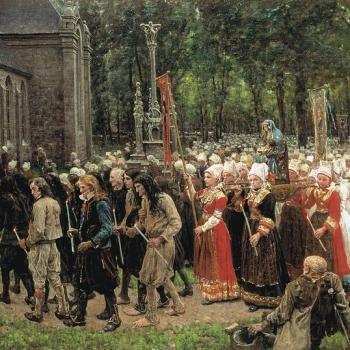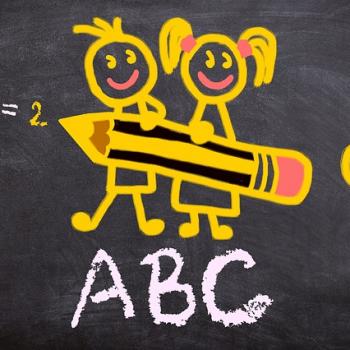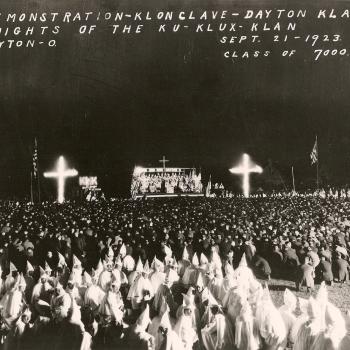Editors' Note: This article is part of the Patheos Public Square on the Future of Faith in America: Catholicism. Read other perspectives here.
According to a new and especially solid Pew survey, the Catholic Church in the United States has just suffered a dramatic decline in membership. A crisis is upon us.
The Pew Research Center found that in 2007 there were 54 million self-declared Roman Catholics. In 2014, there were three million fewer. This despite the fact that during that time the American population as a whole grew by 18 million.
This is "New Evangelization" in reverse!
More people are leaving Catholicism for other Christian denominations than the reverse. Much worse, in just these seven years, almost four million mostly younger individuals not only have left the Catholic Church but also now identify themselves as having no religion.
It is difficult to see anything good in these precipitate declines. Steady erosion among Catholics is now bleaker than for any other Christian group.
In the latest poll, almost 32 percent of Americans polled reported that they had been born Catholic. At the same time, a full 41 percent of this number said they are no longer Catholic.
Fourteen more years in this direction and the Catholic Church will have become a remnant of its old self.
What is causing this rapid outflow? Since it is appearing most drastically among those born from the 1980s to the early 2000s (Millennials) something is going very wrong in our families, in Catholic education, and no doubt in the Catholic culture in which young people today grow up. Is it too much to call this an emergency? Is it too much to ask the bishops to meet this emergency as the Plenary Councils of Baltimore did in the late 1800s?
It usually does help to put matters in historical perspective. Since the 1830s, when Catholic immigrants started pouring into the United States, the Catholic population of the nation grew steadily and ever more briskly. Yet at the same time the ex-Catholic population also exploded. Millions of immigrants lost their faith in the oceanic transition.
Sometimes this was because they came from rural regions where they were habituated to but weakly instructed in their faith. Sometimes it was because they moved into regions without pastors and almost wholly without churches. Sometimes it was simply because when they turned away from the culture of their birth, they also moved beyond the faith of their birth, and were willing, maybe even eager, to plunge into something new.
For much more than a century there have been millions of new American citizens with Catholic last names who are no longer practicing their faith. America's early bishops recognized in these millions a new mission territory. Many thousands of new pastors, already scarce, had to be supplied, in scores of new tongues.
Around the whole world, there are few nations in which 70 percent of all citizens today call themselves Christians (as the Pew survey reports of the United States in 2014).
Still, ever since the bestsellers of the "new atheism" several years ago by Dawkins, Hitchens, Dennett, and Harris, an active propagation of the new nonfaith has taken root. The Christian faith now has a new rival on the field. Since Vatican II, instruction in the Catholic faith has not provided good answers to the objections raised by the new atheists.
Nor are there popularly available Catholic alternatives to the new sexual morality. The vision of the human person propagandized by the American media goes largely unanswered. Catholic teaching of our faith appears to be in retreat, voiceless, almost invisible. The ramparts appear deserted. No full-throated intellectual offensive is moving on any front. Our young have been left defenseless.
Much worse is yet to come. After the U.S. Supreme Court decision changing the definition of marriage, we dare not expect much mercy from the most aggressive despisers of our fuller definition of marriage, which includes openness to children, chaste fidelity, and indissolubility.
Scarier, a majority of our young now seem to agree with the Court's shrunken definition of marriage. Pluralities even hold that in the Supreme Court decision "love has won." Such immense confusion in their minds even about what love is!
Why are our attempts to teach our most central and beautiful convictions so inadequate? A New Apologetics is an urgent task.
"Be not afraid!" St. John Paul II reminded us during some twenty-six turbulent years. There have been worse, bleaker, and more punitive times than ours, he suggested.
Following him, Pope Benedict predicted the very crisis that we are now facing:




